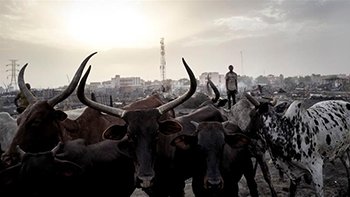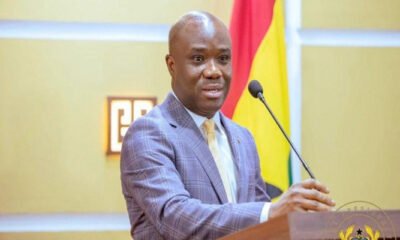News
Many killed in central Mali ethnic attacks: Officials

Armed men on motorcycles have killed at least 27 civilians in central Mali in three attacks on ethnic Dogon farming villages in less than 24 hours, local officials said on Thursday.
Central Mali has been ravaged in recent years by ethnic reprisal killings, as recriminations between Fulani herding and Dogon farming communities over violence compound long-standing grievances.
Local officials told Reuters news agency they believed the three attacks, between Tuesday night and Wednesday evening, were carried out by people claiming to be defending Fulani against rival Dogon.
“We were surprised by the attack on the village of Tille. Seven were killed, all Dogons, some of them burned alive,” said Yacouba Kassogue, the deputy mayor of Doucombo, the municipality in which Tille is located.
Attacks on villages in the neighbouring areas of Bankass and Koro killed another 20 civilians, most of them shot or burned to death, local officials said.
A spokesman for Mali’s army was not immediately available for comment. The army has been criticised by rights groups and residents for failing to protect civilians in central Mali.
Violence between the Dogon and Fulani has compounded an already dire security situation in Mali’s semi-arid and desert regions, which are used as a base by armed groups with ties to al-Qaeda and the ISIL (ISIS) group.
The Fulani are primarily cattle breeders and traders, while the Dogon are traditionally sedentary farmers.
Last year, the United Nations mission in Mali (MINUSMA) announced it recorded “at least 488 deaths” in attacks on Fulanis in the central regions of Mopti and Segou.
In the bloodiest raid, about 160 Fulani villagers were slaughtered in March last year at Ogossagou, near the border with Burkina Faso, by suspected Dogon hunters.
MINUSMA said since January 2018, armed Fulanis had “caused 63 deaths” among the civilians in the Mopti region.
MINUSMA has been operating in Mali since 2013, which ranks as the most dangerous UN mission, with 125 peacekeepers killed in attacks since deployment.
The Armed Conflict Location and Event Data Project (ACLED), a consultancy that tracks political violence, says it recorded nearly 300 civilian deaths in Mali in the first three months of 2020, a 90 percent increase over the previous quarter.
AL JAZEERA AND NEWS AGENCIES
News
Damango wages war on shisha smoking among minors

Troubled and anxious citizens in Damongo of the Savannah Region have expressed concerns about the number of young people, believed to be under the age of 18, involved in ‘shisha’ smoking in pubs and drinking spots within the township.
Eyewitnesses say the minors were seen patronising nightlife venues, where Shisha smoking happen in the open.
The situation has sparked renewed public concern over the enforcement of child protection laws and regulations governing the operations of entertainment centres in the municipality and country as a whole.
An eyewitness, who spoke to The Spectator on conditions of anonymity for security reasons, noted that the situation was becoming increasingly common.
“This is not a one-off incident. It is becoming very common, but residents like us cannot openly report or speak about it because our lives will be at risk,” he said.
Under Ghanaian law, minors were prohibited from patronising Shisha.
Public health experts have consistently warned that shisha use exposes users to harmful substances that can negatively affect brain development, respiratory health, and overall well-being, particularly among young people.
The residents believe the alleged incidents point to broader challenges relating to youth supervision, substance abuse, and weak enforcement of existing regulations and have called on municipal authorities, security agencies, and regulatory bodies to intensify monitoring of pubs and entertainment centres to ensure compliance with the law.
In an effort to address the menace, Mr Salisu Be-Awurbi, the Savannah Regional Minister, has led public education campaigns, engaged security agencies, and supported enforcement actions to address the rising use of illicit substances in the region.
Wura Kelly Seidu Boresah I, the Chief of Damongo, has also called on all stakeholders including parents, community leaders, institutions, and young people to actively support efforts to curb drug abuse, warning that the rising consumption of hard drugs poses a serious health threat to the future of the youth in the Savannah Region.
He also cautioned individuals involved in the sale and distribution of illicit drugs to immediately desist from the practice, stressing that offenders will face arrest and prosecution in accordance with the law.
From Geoffrey Buta, Damongo, Savannah Region
Join our WhatsApp Channel now!
https://whatsapp.com/channel/0029VbBElzjInlqHhl1aTU27
News
Ga Mantse endorses initiative to end domestic voilence

Dr Theresa Baffour, an advocate for ending violence and Chief Executive Officer (CEO) of SAHM SAHW Foundation, has said that society plays a critical and pivotal role in breaking the cycle of domestic violence.
According to her, domestic violence is a major contributor of making women, who are mostly the victims, mentally derailed and unable to engage in economic activities.
She said this when the foundation called on the Ga Mantse, Nii Tackie Teiko Tsuru II, to solicit support for the initiative by the “Strong and Healthy Minds, Strong and Healthy Women” (SAHM SAHW) to combat domestic violence within the Ga State.
The visit was occasioned by the fact that domestic violence cases have become quite prevalent in the Ga communities and is retarding growth.
According to her, the canker was an impediment to national development because the victims were usually tortured and would have to go through series of therapies to return to the right state of mind.
Dr Baffour mentioned that Gender-Based Violence (GBV) places a mental toll on women, and was, therefore, important to break the cycle through comprehensive mental health support, crisis intervention and empowerment programmes in communities with high rates of GBV.
This intervention, she underscored, would help in empowering the denigrated victim of domestic violence to soundly heal, build and thrive.
Dr Baffour added that the initiative would provide holistic, trauma-informed mental health care and advocacy for young women affected by domestic violence.
According to her, the above statement would create safe spaces for healing and equipping them with entrepreneurial skills for renewed hope and empowered life.
The Ga Mantse pledged his support for the laudable initiative to combat domestic violence and also acknowledged the need to address it in the Ga State.
Further endorsement came from Justice Julia Naa-Yarley Adjei Amoah, Chief of Staff at the Office of the Ga Mantse, as she commended the team of SAHM SAHW Foundation for taking a bold step to end the canker in the Greater Accra.
She added that it was a step in the right direction to save vulnerable women from torture, stress and emotional abuse.
By Alfred Nii Arday Ankrah







